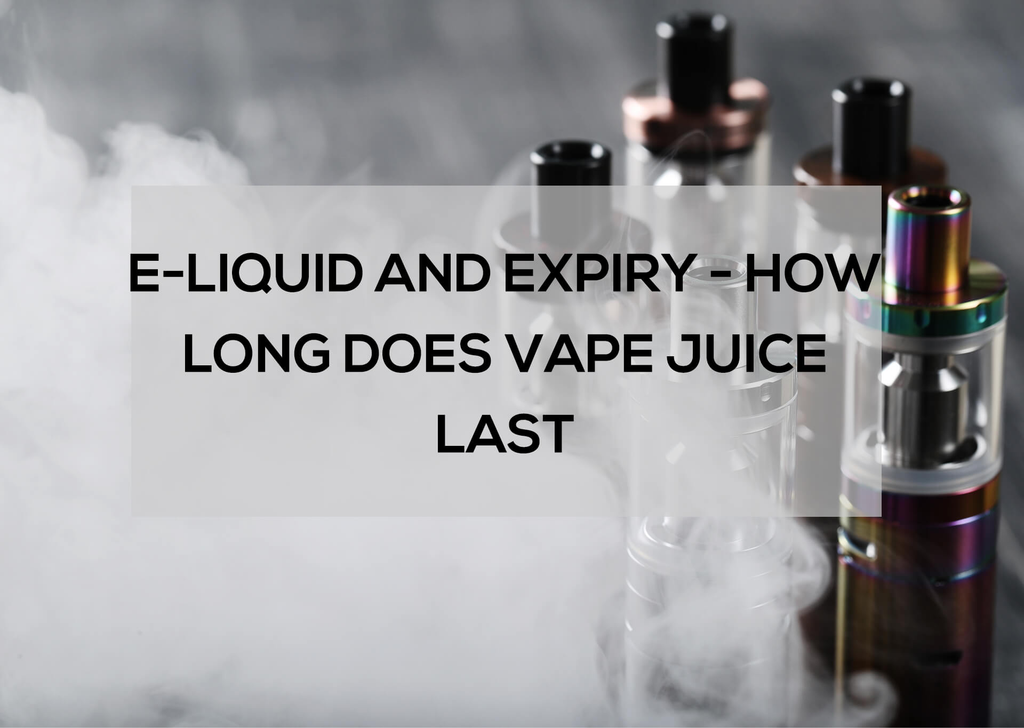
E-Liquid and Expiry: What is The Shelf Life of E-Liquid?
The question regarding the longevity of e-liquid is quite a popular one in vaping circles, more so among the beginner and intermediate user crowds.
And a good question at that. Nobody wants to vape bad e-juice. Not only is the vaping experience itself bound to be compromised, but you never know what you’re getting into your body when the juice has gone past its sell-by date.
Which begs the question…
Does Vape Juice Expire?
Every consumable product has an expiry date. The duration may vary, but most consumable products contain ingredients that have a set shelf life.
In the case of vape juice, e-liquid does contain several food-based ingredients which are not meant to last forever – if they could, that would most likely not be a safe product to get into your body.
The thing about vape expiration dates is that, just like with food products, the date is only an estimation of the time that the contents inside the bottle are no longer guaranteed to be of the same quality as the time the e-liquid was purchased.
Typically, the shelf life for most e-liquids ranges between one and two years from the date of manufacture. And this is due to the constituents present in the juice – in particular, VG, PG, and nicotine.
These three important components – which largely make up every e-liquid (in addition to flavouring) – have an established shelf life of about two years. And that’s providing they are stored in the right conditions.
The right conditions are those that do not expose the juice to direct sunlight, too much heat or air. Otherwise, the three components start to break down faster, leading to a case of expired e-liquid.
You will know your juice has gone stale if the flavour starts tasting a bit off, although this can be misleading sometimes considering each flavour is a bit different. Some juices lose flavour in two years, others can last up to five.
However, when either of the individual e-liquid components starts to break down, it will be like a bad apple: it spoils the whole barrel.
It is important to remember that expiry dates are only but an estimation. It is upon you to decide whether or not the juice is good for vaping.
How to Tell If your E-Juice is Expired
Usually, there are tell-tale signs that you can check for to determine if your e-liquid is good or not.
Smell – One quick whiff of your e-liquid can tell you if it is good or bad. Not all juices will change their smell significantly. However, just like the gallon of milk in your fridge, if it has a funky smell or looks odd, chances are it is past its prime.
Separation – Naturally, the heavier, denser elements of vape juice tend to gravitate towards the bottom of the bottle when it is left idle for some time, and shaking the bottle mixes everything up again. By contrast, the components of the juice do not mix even after a couple of shakes.
Poor storage – Poor storage could also cause the juice to spoil before its sell-by date. Usually, it will exhibit signs like discoloration, a loss in flavour, lack of vapour, and loss in nicotine.
Extending the Life of your E-Juice
It’s worth pointing out that prolonged storage does not cause e-liquid expiration. If anything, what this does is enhance the flavour of the juice through what is known as e-liquid steeping.
Steeping involves letting your vape juice sit idle for several weeks with the aim of maturing the flavour. However, it has to be done right or stored under the right conditions we mentioned earlier to keep the juice from going bad.
The best way to store e-liquid is to keep your bottles in a cool, dark place. Direct sunlight should be avoided as it heats up the juice, accelerating a breakdown of the components which degrades the quality of the e-liquid.
Thus, even when moving around with your bottles, you want to avoid hot areas like the inside of your car. You will know your e-juice has been exposed to heat when it begins to change colour, assuming a yellow hue that gets darker with time.
Ideally, you should store any e-liquid not being used in dark-coloured bottles inside a cabinet – a private cabinet will work just fine as opposed to say, the kitchen’s. These bottles should be tightly sealed to avoid exposure to air.
